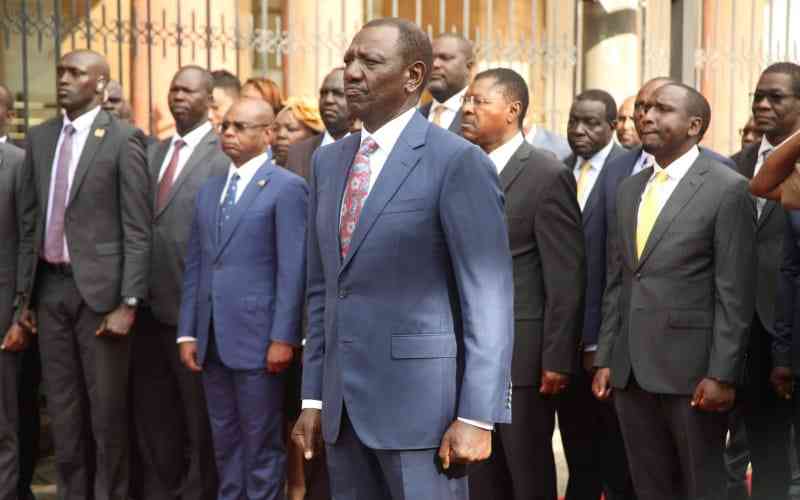By Rawlings Otieno
The UN has put Kenya under the spotlight to explain why the Executive continues to ignore court orders and failure to prosecute police officers engaged in torture.
The United Nations Commission on Human Rights (UNCHR) on Tuesday questioned the Kenyan delegation to Geneva over the manner in which the Executive branch of the Government continues to breach court orders.
The team headed by Justice Minister Eugene Wamalwa was asked to provide data on the number of police torture victims and those who had been arraigned before the courts, which the Kenyan delegation did not submit in its report.
In defence, acting Justice and Constitutional Affairs PS Gichira Kibara explained that the Judiciary has been undergoing a reformation with crucial Bills to reform the police service being enacted.
“The establishment of the Independent Police Oversight Authority is expected to spearhead the reforms in the police sector. The Police are also undergoing training to deal with issues of torture,” said Kibara.
A member of the commission sought to know why the Government has failed to comply with Article 2 (5) of the Constitution with regards to the general rules of international law, which had become part of the Kenyan law.
Sub-section 6 of the same Article states that “any treaty or convention ratified by Kenya shall form part of the law of Kenya under this Constitution.”
The commission also sought to get straight records of the UN Special Rapporteur on extra-judicial executions in Kenya that established the extent of reports of increased arbitrary killings by law enforcers.
Prof Philip Alston, a special UN Rapporteur, was sent to probe similar executions by police and military personnel in Mt Elgon region in early 2007 when an operation to end attacks by a militia group the Sabaot Land Defence Force began.
Alston also probed the campaign against the Mungiki terror group launched in 2006.
Kibara said Kenya has upheld the Constitution in regards of respecting people’s rights as enshrined in the Constitution and UN conventions on Human rights.
He said that although the death penalty has been in Kenya’s statute books for a long time, the Court of Appeal had ruled that it is not applicable under the Constitution.
This, he said, is based on the Government’s belief that the penalty is in conflict with the fundamental human right norms as embodied in international instruments of which Kenya is a party.
The President commuted 4,000 death sentences to life imprisonment in August 2009.
Stay informed. Subscribe to our newsletter
 The Standard Group Plc is a
multi-media organization with investments in media platforms spanning newspaper
print operations, television, radio broadcasting, digital and online services. The
Standard Group is recognized as a leading multi-media house in Kenya with a key
influence in matters of national and international interest.
The Standard Group Plc is a
multi-media organization with investments in media platforms spanning newspaper
print operations, television, radio broadcasting, digital and online services. The
Standard Group is recognized as a leading multi-media house in Kenya with a key
influence in matters of national and international interest.
 The Standard Group Plc is a
multi-media organization with investments in media platforms spanning newspaper
print operations, television, radio broadcasting, digital and online services. The
Standard Group is recognized as a leading multi-media house in Kenya with a key
influence in matters of national and international interest.
The Standard Group Plc is a
multi-media organization with investments in media platforms spanning newspaper
print operations, television, radio broadcasting, digital and online services. The
Standard Group is recognized as a leading multi-media house in Kenya with a key
influence in matters of national and international interest.








